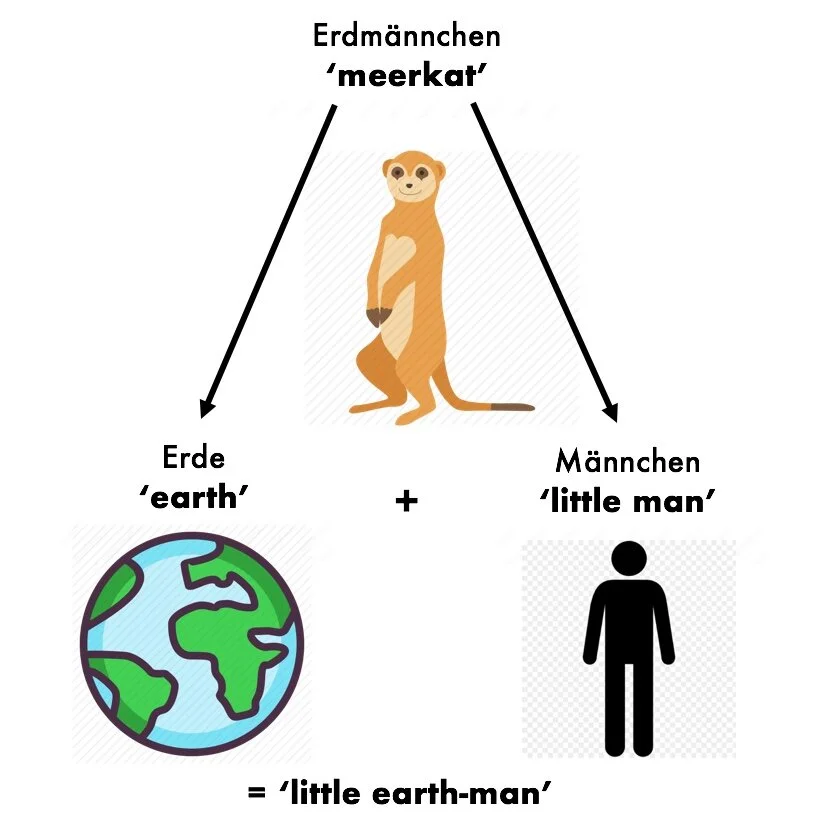Beyond Translation: Spanish
Have you ever found yourself unable to put a feeling or situation into words? Or that your native language feels inadequate to express what you want to say? Ever looked for an expression with that certain je ne sais quoi? Well, maybe that means you just need to learn more languages in order to find those words! The team at LanGo has been exploring this exciting topic over the past few weeks. If you keep up with us on Instagram you may have seen our most recent Reel series “Beyond Translation” where we look into words and phrases that don’t have direct equivalents in English. Here in this post we will take a closer look at some of our favorite words and phrases (as well as a few others) from the first Reel featured in the series on Spanish!
Madrugar (verb)
Meaning: to wake up early in the morning
Literal translation: ‘to early morning, to dawn’
Example use: Madrugo para aprovechar la mañana. (I wake up early to make the most of the morning.)
This verb is especially useful for all of the morning birds. It is related to the noun la madrugada which literally translates to ‘dawn’ or ‘early morning'. Taking that noun and adding on -ar, which indicates an action, gives us a new verb that can be used to talk about the early hours of the day in a more specific manner. This is a common word-creation strategy in Spanish: adding an infinitive verb ending (-ar in this case) to create a very specific new verb!
Dominguear (verb)
Meaning: to have a relaxed and easy Sunday
Literal translation: ‘to Sunday’
Example use: Voy a pasar el día domingueando con mis amigos.
Here is a great example of creating a new verb from an existing noun: we see the word for the day of the week domingo plus a verb ending. The ending -ear is added while the final -o is truncated. Literally this would mean ‘to Sunday,’ but the word has come to mean something even more nuanced and specific: dominguear encompasses everyone’s favorite relaxed Sunday activities to express a very specific mood and feelings of comfort (not including the feelings of Sunday scaries!). Often, you will see this verb in its gerund form: domingueando. This word is also commonly used in a noun form dominguero/dominguera which translates something similar to ‘(Sun)daytrippers’ or ‘Sunday tourists’. This word has a similar negative connotation that the word ‘tourist’ often has in English, meaning one doesn’t really know a place, they only know the tourist spots.
Friolento / Friolenta (noun)
Meaning: a person who is sensitive to cold, characteristically cold
Literal translation: related to cold, cold person, a “coldie”
Example use: La friolera siempre lleva una chaqueta, ¡incluso en el verano!
That person who is always cold and always needs a jacket? Now you have a name and point of reference for them! This word can also translate to ‘chilly’ and be used as an adjective to describe the weather or other cold environment. You may also see a variant of this word that has the same meaning: friolero / friolera.
Anteayer (adverb)
Meaning: the day before yesterday
Literal translation: before-yesterday
Example use: Anteayer, fui con mi madre al cine.
Anteayer (sometimes written as antier) is such a simple but useful word. This singular word in Spanish is able to convey something that would need 4 words in English (1. Anteayer = 1. The 2. Day 3. Before 4. Yesterday). There is the archaic English word ‘overmorrow’ meaning “the day after tomorrow” which is formed the same way as anteayer, adding a preposition to a noun. We love to see efficiency and simplicity in language use!
Puente (noun)
Meaning: long weekend (used in Spain)
Literal translation: bridge
Example use: Este puente voy a ir a la playa en Valencia.
Spain celebrates many public holidays. When one of these holidays falls on a Friday, Monday, or even sometimes on a Thursday, many people opt to make a bridge from the holiday to the weekend to have more days off. Many businesses close on a puente day as well. To celebrate the long weekend, people go to the beach, the mountains, the countryside, or celebrate with friends and family with food and drinks.
Enchilarse (reflexive verb)
Meaning: eating something very spicy to the point your mouth feels on fire
Literal translation: to put a chili-pepper into oneself
Example use: ¡Esta salsa es demasiado picante! ¡Me enchilé!
The image of this word is so clear and relatable. It really encompasses that feeling of lighting your mouth on fire, as if you put yourself into the hot spicy chili.
Sobremesa (feminine noun)
Meaning: relaxing and having conversation at the table after a nice meal, usually extending long past the end of the meal
Literal translation: over-table
Example use: Una vez cada mes tenemos una sobremesa con la familia.
This word is another that comes from Spanish culture. Sobremesa encompasses the idea of relaxing around the table and not rushing to finish or pay for a meal. Spanish culture values taking it easy and enjoying the company of others, and this word really captures the spirit of that.
Entrecejo (masculine noun)
Meaning: the space between the eyebrows
Literal translation: between-eyebrows
Example use: Dicen que en el entrecejo está el centro de la sabiduría.
This is another word that really makes the use of the language efficient. This is a compound word (palabra compuesta) that combines a preposition (entre ‘between’) and a noun (ceja ‘eyebrow’) to create a new noun (with a new gender!) with a new meaning.
Estrenar (verb)
Meaning: to wear something for the first time, to premiere, to launch, to debut
Literal translation: to premiere
Example use: Voy a estrenar el vestido nuevo que compré de Zara esta noche.
The idea of a new outfit making a début or its première feels absolutely fabulous. This word is so useful and can make something as common and mundane as wearing clothing feel special and exciting.
Tocayo / Tocaya (noun)
Meaning: someone who has the same name as you
Literal translation: namesake (likely from Nahuatl)
Example use: Somos tocayas porque nuestro nombre es Marisol.
Like the name-twin equivalent to “doppelgänger,” tocayo puts a name to that special bond you feel with someone who shares your given name, even if you don’t know the person.
Estadounidense (noun)
Meaning: citizen of the United States
Literal translation: United-States-ian
Example use: Nació en Texas, por eso soy estadounidense.
If you are from the United States, chances are you identify yourself as American. The problem with this is it’s not inclusive. Yes, people from the US are rightly considered American, but so are people from Central and South America! Estadounidense takes the noun Estados Unidos (United States) to create a very country-specific adjective of national identity.
Botellón (noun)
Meaning: a Spanish activity when people congregate and socialize while drinking
Literal translation: big bottle
Example use: Vamos al botellón en el parque del oeste para ver el atardecer antes de la fiesta.
Here we can see yet another word encapsulating social gathering culture in Spain. Close your eyes, take yourself to your favorite spot in your favorite park with a bottle (or bottles) of vino tinto with your friends while watching a sunset and listening to whatever street musician is playing. Release all cares in the world and live in the moment. That is how you botellón.
Desvelado / Desvelada (adjective)
Meaning: sleep-deprived, unable to sleep, up all night, wide awake
Literal translation: “away from awake”
Example use: Ella está desvelada y aprovecha para leer y tomar té.
The verb desvelarse means ‘be unable to sleep.’ Inflected as an adjective in Spanish from the participle, we get a specific word to mean that one is wide awake due to being unable to sleep. A useful word for insomniacs and night-owls alike!
Resolana (noun)
Meaning: when you can feel the sun on your skin even when it's cloudy or you're in the shade
Literal translation: glare of the sun
Example use: Me pongo un sombrero para el sol mientras caminaba por la resolana.
Always remember your SPF, even if the day doesn’t appear to be particularly sunny! Resolana describes that feeling when the sun isn’t necessarily strong and shining, but you can still feel it on your skin, and may even experience a sunburn still.
Te quiero (verb querer)
Meaning: somewhere between “I like you” and “I love you”
Literal translation: I want you
Example use: “Quiero mucho a mi familia.
Sometimes, “I love you” is too strong and “I like you” isn’t strong enough. Enter te quiero which exists somewhere in between. This is a perfect expression to use to express that you deeply care for someone without scaring them off by using the “L” word too soon. This is also a good verb to use with family and friends whereas the verb amar would express a deeper love.
We hope you have enjoyed this survey of untranslatable words in the Spanish language. Looking at vocabulary and word construction in other languages really expands our study of languages and even gives insight to how words are formed in our native language of English. Employ some of the words in your own practice of Spanish and feel the satisfaction of efficient language!
Check back for more language features with more words that are Beyond Translation.
































Tools for helping you master some of the trickier points of German grammar, whether you’re learning it for the first time or wanting to review the fundamentals. Los geht’s!